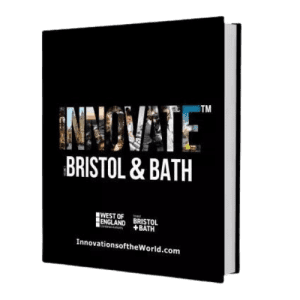Bristol has a reputation for the high-tech industry, innovation, creativity and entrepreneurship.
However, the city is marked as the 7th worst of 348 districts in England & Wales for black and ethnic minority communities to live and thrive. The issue has been further exacerbated by the COVID-19 pandemic. So what can we do?
As a passionate resident and founder of an award-winning social enterprise in the city, there are three things that come to mind to help tackle the issue:
1. Invest in social innovation – For far too long the idea of social innovation has been relegated to the nonprofit sector. I believe the time has come for cities to lead the way in unleashing new forms of bottom-linked governance and services that respond to our human needs for the next century.
Just a Quick Note:
InnovationsOfTheWorld.com has partnered with Trade License Zone (TLZ) to support global innovators looking to expand internationally. Take advantage of the UAE’s Free Zones—enjoy streamlined setup, low corporate taxes, and a strategic gateway to the Middle East and beyond.
Get Your UAE Free Zone License Fast & Easy!Bristol could be at the forefront of a radical review of its social, cultural, politics and education sector. It could become the model city that actively captures the voices and input of young people in the redesign of services to create a fairer and equitable society.
2. Embrace the technological revolution – Like the revolutions that came before, the technological revolution has the potential to raise income levels and improve the quality of life for people in a city of declining social mobility. The tech revolution is also known to have a reputation for low entry requirements, allowing for a much wider cross-section of society to become active participants.
It would therefore be shortsighted and a missed opportunity for city policymakers and businesses to not invest in technology and IT skills for young people from low-income and ethnic minority backgrounds, as a means of redressing the inequality gap and stimulating inclusive growth. Particularly as young people represent the desirable architects, being digital natives, to drive Bristol’s economy into the fourth industrial revolution.
3. Set a measurable long-term city challenge – To break the cycle of inequality, Bristol needs to be intentional and focus its strategies and policies by setting a measurable long-term challenge – to not only lift individuals out of poverty but also enable them to support their families and serve as role models in their communities.
In summary, I think inclusive and innovative recovery programmes should be at the heart of all economies that are working towards sustainable growth. And I believe Bristol has the core values and strong leadership to make the city work for all of its citizens with the right plans.
















